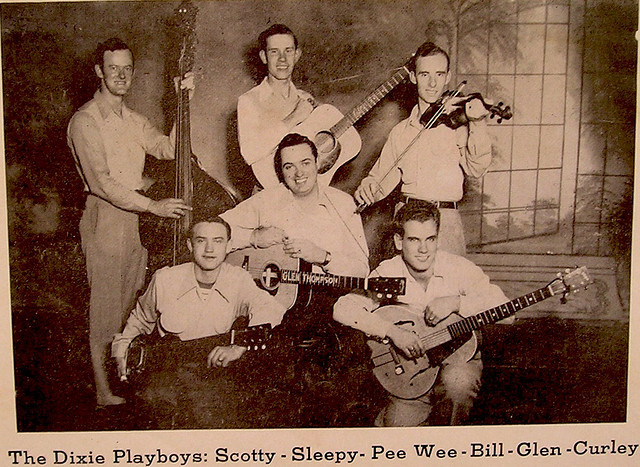Every Friday in Sacred Space, Brad Williams explores the place of popular culture in the local church.
If it is true that discretion is the better part of valor, we might earnestly pray that our pastors would realize this. While you are engaged in intercession for pastors in such matters, it will not take long to also mention bloggers in that particular request as well. You could even mention me, if you please, I am a pastor and a blogger, and I need help as much as anyone. Ask my editors. [Editor: Yes]
Thank the Lord I do have editors [Editor: Tell me about it.]; lately it seems that many of my colleagues in the ministry of blogging and preaching do not. With the new media, everyone who has access to a computer can instantly upload all their thoughts and tantrums to the internet with a theoretical billion or so viewers. For the average Joe at home, that probably isn’t that big of a deal. Other than annoying a few people on Facebook with your drama, he probably will not wreak that much havoc. But for a pastor, it can be devastating. I labor under the reality that there are several dozen families who take what I say seriously because I am a pastor. I am their shepherd, and I will give an account for their souls. So the content of what I put out on the internet matters because it immediately affects them and comes from someone they regard as trustworthy.
Pastors, especially evangelical ones, seem particularly vulnerable to “know it all” syndrome. The average pastor in an evangelical church generally says that he feels “called” of the Lord to be a pastor. So he has an idea that God has specially made him to lead, guide, and direct the people of God. This feeling of divine right can easily morph into the idea that they are special and above normal mortals who inhabit the church. They picture themselves as a kind of Moses, delivering the law of God to a bunch of rebellious Israelites who do not have the same wisdom and connection to God that they do.
This leads to the second downfall of the evangelical pastor. He believes, rightly, that the Bible is true, God-breathed, and awesome. Because it is trustworthy and true, the pastor comes to realize that the Bible is the expert on everything. And since he is an expert on the Bible, the pastor comes to fallaciously view himself as an expert on everything. If you couple this notion with a congregation that gives him little accountability intellectually, or worse if they are propping him up as the local expert on everything, then he is going to become a disastrous personality to deal with. If you couple a sense of ‘divine right’ to pontification with the idea that one is an expert on everything, you have a formula for almost uncorrectable bloviating.
So how can the church help pastors not become arrogant, over-bearing know-it-alls who have the answer to everything from proper social gender behavior to who we ought to vote for and to whether or not global warming is for real? Don’t misunderstand me, I’m all for pastors having an informed opinion on many matters. I’m simply advocating for churches to raise a pastor’s awareness to the difference between “Thus says the Lord” and “I think…” Because the tricky part is that some things are “Thus says the Lord”, but some aren’t. So what is a church to do?
First, stop handing all the responsibility for administration and teaching to one guy. If that particular guy is fresh out of seminary and under twenty-five, the search committee should probably be horse-whipped. There are exceptions, I confess it, but they are few and far between. There is a reason that Paul says that an overseer ought to have children that behave, be a proven one-woman man, and not a new convert (1 Tim. 3:1-7). God gives us fantastic doses of humility through child-rearing and marriage, and most people cannot learn patience and empathy without a debacle or ten in both departments.
Second, stop talking about whether or not a guy feels “called” all the time and ask more biblical questions. Or at least, ask questions that aren’t entirely subjective and un-quantifiable. Paul says that the man who “desires” the office of overseer “desires” a good thing. He doesn’t say the guy who feels “called”, he says the guy who really wants to do it. So ask the guy if he wants to be a pastor. God does not have to force the man to do it, the man ought to want to and he ought to have the humility and wherewithal to admit it.
Next, find out if the guy is qualified. Is he a good teacher? Does he have a reputation for being pugnacious or patient? Does he love to fight or make peace? Would he rather punch someone who disagrees or sit him down for a meal and a chat?
Does this mean that our pastors should be pushovers? No, they ought to be able to encourage and reprove, and reproving means disciplining and standing up to real error. But he ought to do it in a way that doesn’t devolve into raucous name-calling, at least, the pastor ought not be the one doing the name-calling.
One last thing, if your pastor has a blog, encourage him in it if he blogs well. But you might want to suggest that he get an editor, because two eyes on a post make for a better post. Also, it helps if that editor will occasionally say, “Uh…bro, this is dumb.” [Editor: Uh, about that, Brad…] So thanks, Rich and Alan [Editor: You’re welcome, readers. You are welcome.] and Drew for rescuing me from dumbness on the internet a couple times. And also Seth, who isn’t an editor but does a really good job of exposing my ignorance. Occasionally. I mean, sometimes I am right.
Right guys? [Editor: ]











